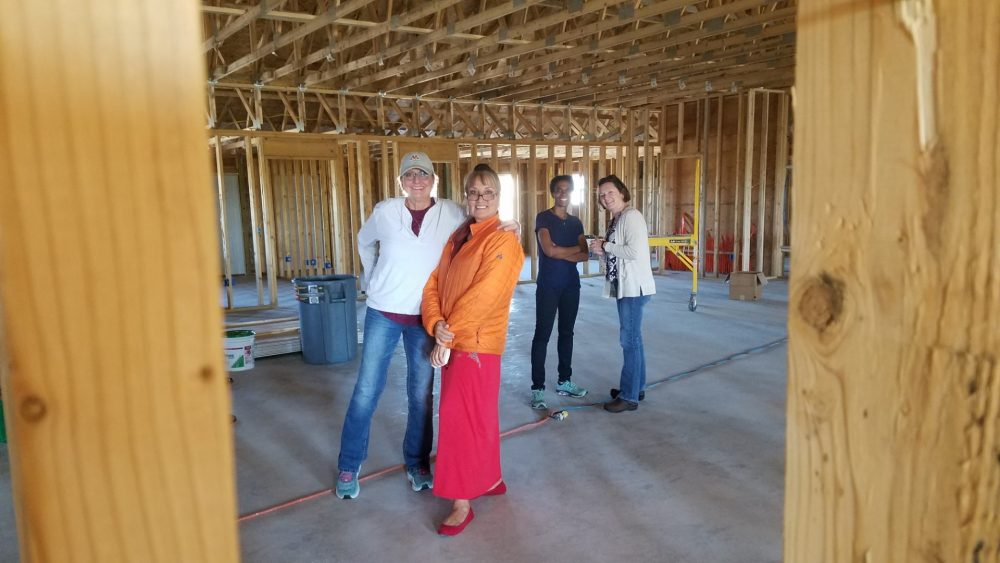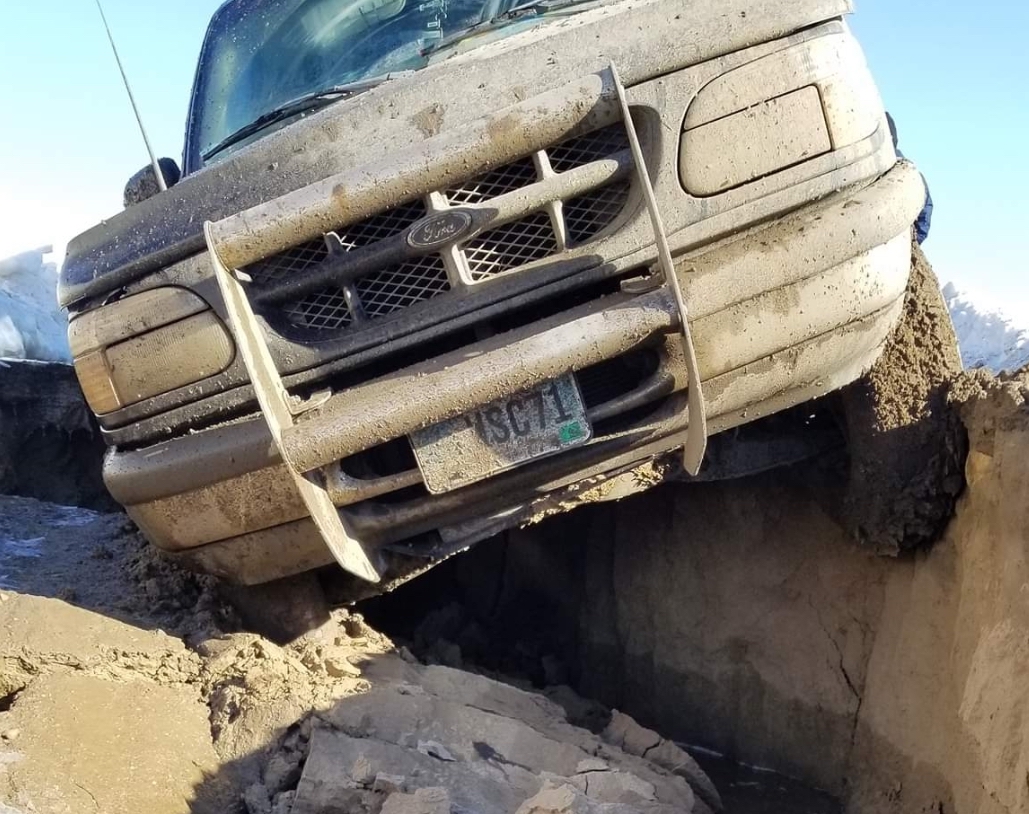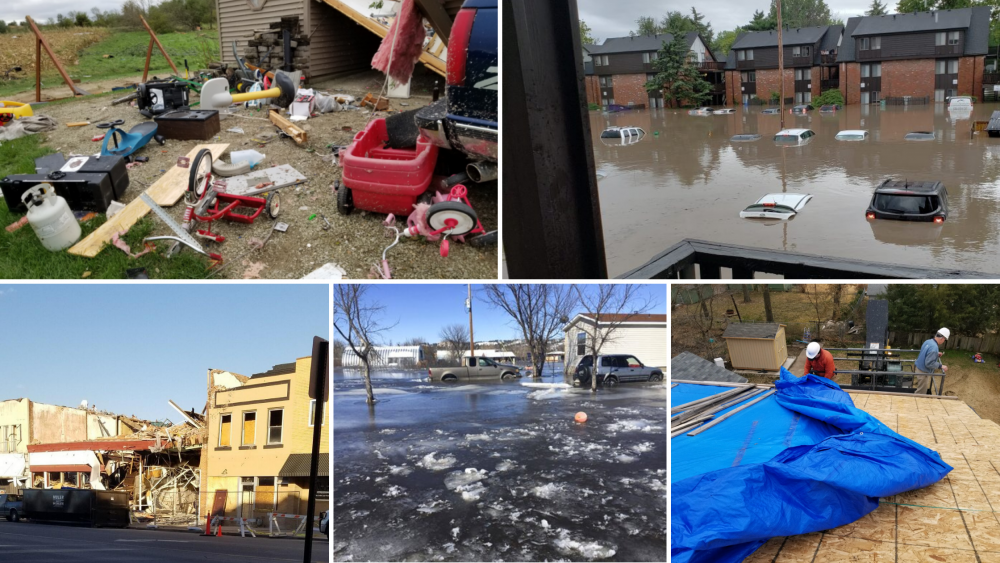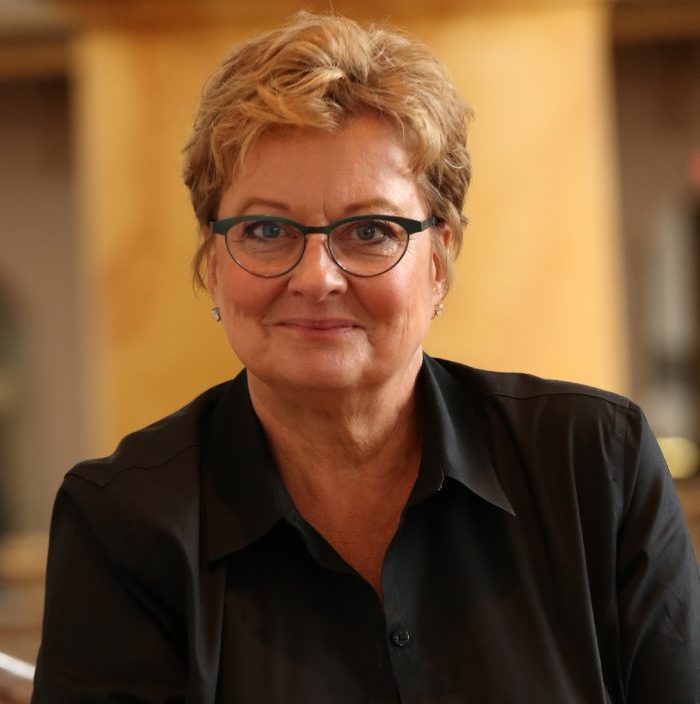Pine Ridge Reservation: Six Months After the Bomb Cyclone
CDP Vice President Regine and I were recent travel companions to the Pine Ridge Reservation in southwest South Dakota. Two hours south of Rapid City, Pine Ridge is home to approximately 30,000 Lakota Native Americans. The land there is austere, rugged and breathtakingly beautiful. It is also home to some of the most severe weather […]

CDP Vice President Regine and I were recent travel companions to the Pine Ridge Reservation in southwest South Dakota. Two hours south of Rapid City, Pine Ridge is home to approximately 30,000 Lakota Native Americans. The land there is austere, rugged and breathtakingly beautiful. It is also home to some of the most severe weather conditions in the United States. Maretta Champagne wrote about the really challenging conditions on the reservation after the bomb cyclone in March; it is distressing to note that not a lot of progress has been made, frankly because conditions were not good before this winter’s brutal weather.
Our CDP Midwest Early Recovery Fund’s first grant to Pine Ridge was in February 2016 to Re-Member, a local nonprofit working with volunteer labor to repair and rebuild homes. Year after year, the storms keep coming and in response, CDP continues to support disaster recovery work – supporting disaster case management and the repair and rebuilding of dozens of homes with multiple partners. We have been one of the few funders consistently investing in recovery work on the reservation. A presentation we attended while in South Dakota bore that out.
Mark Ford, from Partnerships with Native Americans (PWNA), presented a report from First Nations Development Institute entitled: We Need to Change How We Think, Perspectives on Philanthropy’s Underfunding of Native Communities and Causes. The report states: “Only 0.23% of philanthropic funds are awarded to Native-led nonprofits despite the fact that Native Americans represent 2% of the national population and are among the communities of greatest need in the U.S.”
Although there is great need on the reservation, that’s not all there is to the story. The work we were a witness to was nothing short of amazing! Steve Wilson, the tribal emergency manager, is one of the best I have seen anywhere, working daily bringing order to chaos.
Maretta Champagne, the Pine Ridge disaster recovery coordinator recently won NVOAD’s Spirit of the Year award for her outstanding work which has been vital to the repair and rebuilding of dozens of homes. Maretta has also brought together multiple nonprofits on the reservation for the first time to support the Pine Ridge Long-term Recovery Team. And PWNA’s work with local grassroots groups on food sovereignty and building preparedness with youth is changing lives. Thunder Valley CDC’s initiatives in areas such as education, housing and home ownership, Lakota language, workforce development and more are all about finding solutions in the genius of their own people. You should read more about their work. There is so much good going on!
The highlight of our trip was a visit to the brand new, almost completed 16,000 sq. ft. Pine Ridge Volunteer/Emergency Services Center. Five funders, including CDP, came together and partnered with Mennonite Disaster Services to literally build local capacity to prepare for and respond to the major disasters impacting Pine Ridge. It will serve year-round as the emergency operations and training center and has the capacity to house, feed and serve up to 48 volunteers.
What was clear from our visit is that there is a place for disaster philanthropy on the Northern Plains Reservations. Years of under-investment in housing and infrastructure, combined with an increase in severe and frequent storms (like the bomb cyclone this March) is devastating homes, lives and livelihoods of our Native neighbors. The time to invest is now.
To learn more about the socio-economic impacts flooding and the facts about what has happened this year and what the projections are for 2020, join us for our webinar, Midwest Flooding: The Year’s Biggest U.S. Disaster, Wednesday, Oct. 30 at 2 p.m. ET. Register here.
More like this

The Very Long, Unpredictable Road Home…

